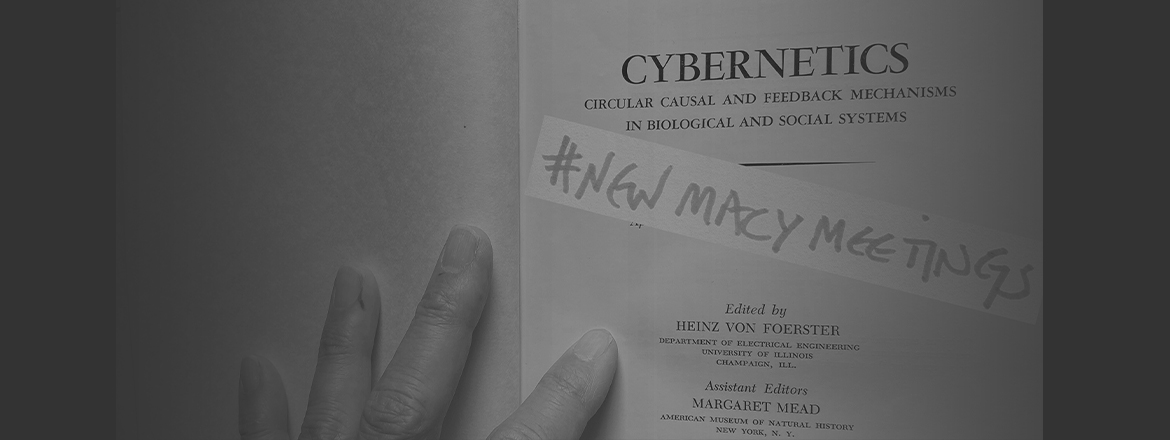

CONFERENCE PANEL PAPER
Just as warnings of biological pandemics have been prominent for at least a decade, fears of the algorithmitization of society by digital computers are also acute and recurring, going back many decades. Just as society is unprepared to address the pandemics of biology—as well as racism and inequality, environment and economics—we are not prepared for the pandemic of “Today’s AI.”
To forefront just one class of exploitative AI, four billion of us are monetized to powerless numbness by gargantuan Internet platform companies that dominate our time, attention, and emotions every day, with no countervailing forces to reign them in. What can be done? What can we, as the systems and cybernetics community, achieve with any degree of authority or effectiveness? And if we do not respond, who will? What will lead to remediation and what new technologies could help?
This presentation proposes specific actions in response to the negative facets of widespread deployment of commercial AI platforms—Facebook, Youtube, Google, Twitter… Specifically, it is argued that AI’s functioning derives from the presumed and embedded logic in AI systems, a codification of the digital subversions of interaction, information, and intelligence. Cybernetics, however, offers analog and humane embodiments of those concepts in an alternative codification, grounded in a ‘logic’ of purposive systems that encompasses the analog (the biological, linguistic, and social) as well as the digital. Thereby Cybernetics offers a bilingual sensibility that can bridge the gaping divide between the two cultures of analog and digital that are currently opposed.
This opens a fertile path for developing analog interactional frameworks, comprising design patterns and prototypes of systems to offer communities of practice (designers, engineers, entrepreneurs, teachers, students). While such alternatives on their own will not displace the obsession with the market’s monetization that sacrifices the individual and the common good, it offers socio-technological alternatives to today’s digital hegemony.
DownloadPosition Paper on #NewMacy: Responding to the Pandemic of "Today's AI"
DownloadPPDF of #NewMacy-related Appendices
DownloadMargaret’s Elegant Question and #NewMacy in the 21st Century
DownloadAndrew Pickering's call for "Next Macy Meetings"
DownloadCybernetics and Design: Conversations for Action, co-authored with Hugh Dubberly
DownloadBlog Post on #NewMacyMeetings
DownloadLess Interference, More Dance!: Interpreting Gordon Pask, Toronto 2019
DownloadLinks about Designing for Conversation
ViewPangaro's RSD5 Video on Vimeo
Paul Pangaro is President of the American Society for Cybernetics and Professor of the Practice in the Human-Computer Interaction Institute at Carnegie Mellon University. A current project is an initiative called #NewMacy that will revive and revise the original Macy Meetings for the challenges of the 21st century. His career spans startups, consulting, research, and education. He has worked with and within startups in New York and Silicon Valley, in product and technology roles. His most recent startup was General Cybernetics, dedicated to new ways of reading and writing in digital media based on Gordon Pask’s Conversation Theory. Past consulting clients have include Du Pont, Nokia, Samsung, Instituto Itaú Cultural (São Paulo), Ogilvy & Mather, Intellectual Ventures, and PoetryFoundation.org. He has lectured in São Paulo, Paris, Berlin, Vienna, Linz, and in cities in the US, most often on design for conversation and conversations for design. Partnering with TJ McLeish as master fabricator, they created a full-scale replica of Pask’s Colloquy of Mobiles, displayed at Centre Pompidou in Paris in 2020 and now part of the permanent collection at ZKM in Germany. Pangaro studied theatre, film criticism, and computer science while earning a B.S. at MIT, spending the rest of his time acting in plays and writing software for interactive graphics and computer-generated film. On graduating Pangaro worked on neural simulations with Jerry Lettvin and then joined the research staff of the MIT Architecture Machine Group (which later morphed into the MIT Media Lab) where he met Gordon Pask and consequently completed his PhD with Pask at Brunel University (UK). His work can be found at http://pangaro.com/. http://pangaro.com/.